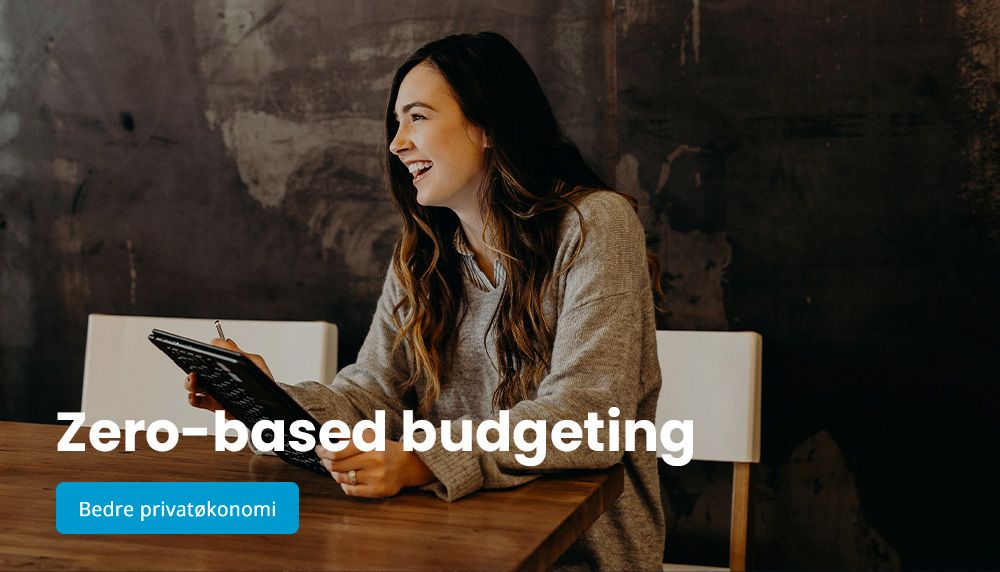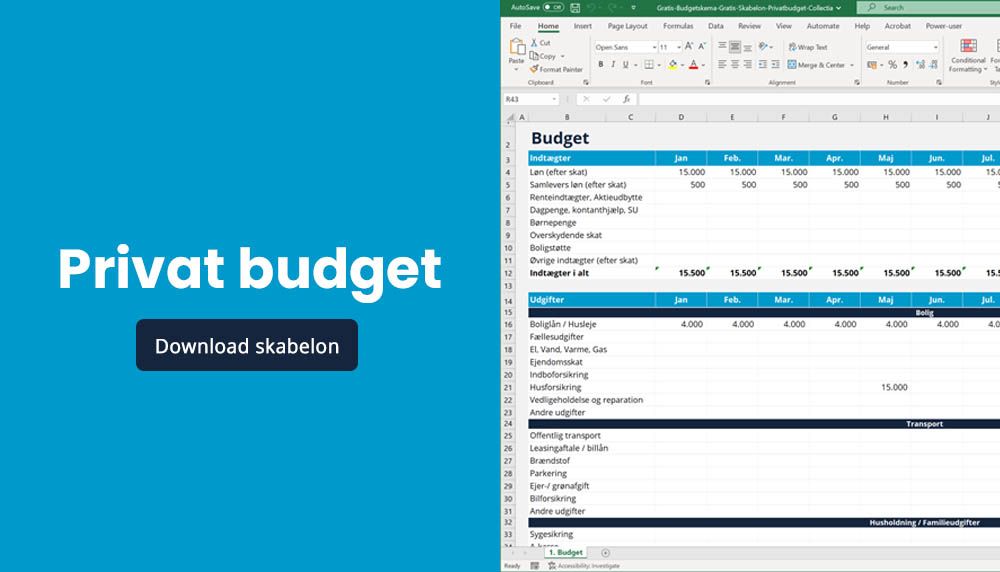
Zero-based budgeting
At Collectia, we are passionate about helping to create healthier finances - both for Danish businesses and for private individuals who struggle to make their finances stretch far enough. That's why we regularly share knowledge, professional insights and good ideas on how you as a private individual can improve your finances and become even stronger in your everyday life.
We always encourage the debtors we come into contact with to create a budget - and there are many good reasons for this.
In this section, we focus again on the personal budget, why a budget is a great tool and how to create your own. Specifically, we have chosen to focus on Zero Based Budgeting, which is a special way of budgeting. A method that will undoubtedly give your finances a number of benefits in your everyday life.
Why do I need to create a budget?
There are many good reasons why you should create a personal budget, but the main reason is to get an overview of your finances. A properly prepared budget can give you a detailed understanding of your finances, including your income and expenses, providing an accurate picture of what you're spending your hard-earned money on.
Without a budget, it can be challenging to navigate your day-to-day finances and understand what your true disposable income is - how much you can afford.
What is zero-based budgeting (ZBB)?
Zero-based budgeting is a way of looking at and working with budgets.
There are many different ways to work with budgets and budgeting. For example, you can work with fixed budgets and adjusted budgets, where the budget is continuously updated as new knowledge is gained.
The concept behind zero-based budgeting is that the budget for each month should balance so that your income minus your expenses go to zero. This means that all income is allocated so that there is no "money left over". In other words, the entire amount available is spent.
What is the difference between zero-based budgeting and traditional budgeting?
The fundamental difference between the classic budget and zero-based budgeting is that the latter allocates all expenses, eliminating any remaining funds in the budget at the end of the month.
In contrast, the classic budget is less specific about whether there is money left over, as long as all expenses are covered.
Both budgeting approaches focus on income and expenses, but zero-based budgeting requires the user to actively allocate any excess funds after fixed expenses to either savings or entertainment to ensure the budget always breaks even.
Read more:
What are the benefits of zero-based budgeting?
Using a zero-based approach to budgeting offers several benefits.
But the overriding benefit of zero-based budgeting is that all expenses are allocated - no exceptions. You're not left with 100 or 10,000 kroner that you don't know what to do with. There is no money that can be "squirreled away" because all money is allocated; whether it's to the respective expenses, savings or for fun and pleasure.
Template
At Collectia, we regularly create templates and other free material for both private individuals and businesses who want healthier finances at home or at work. Among other things, we have created a personal budget template that you can download for free.
When working with the template, simply make sure that all your expenses are allocated so that the result breaks even.



